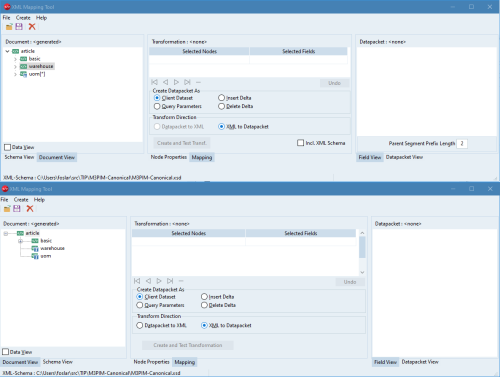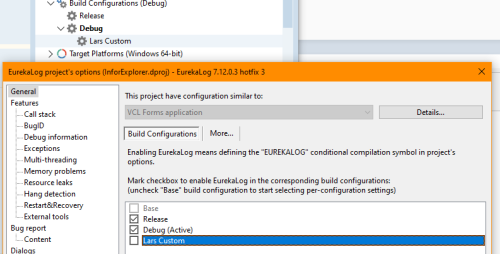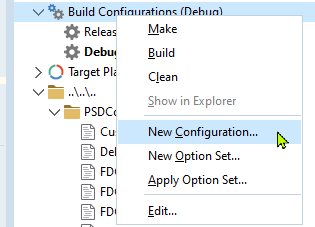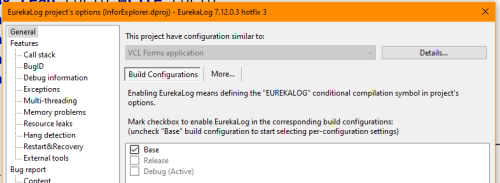-
Content Count
3521 -
Joined
-
Last visited
-
Days Won
115
Posts posted by Lars Fosdal
-
-
I have to agree. Their information - or rather, lack thereof - is really bad for their reputation.
-
 1
1
-
-
21 minutes ago, David Heffernan said:What's the reputational cost of the current fiasco?
Are you thinking about operational cost of new solution vs reputational cost of outage and lack of info?
The suits would probably say those are two different budgets 😛
My personal opinion on the outage and recovery time: priceless, but not in a good way.
As for operational cost: In the context of @Vincent Parrett's observation, if they simply recreated their VMs - that is far more costly than running cloud adapted services, so it will mean a steep increase in operational cost if that solution is maintained for the long run. In the short run, it makes sense in the context of minimizing the reputational cost issue.
-
@Miguel Moreno It seems that the XMLMapper the 12.0 GetIt, is the old version again 😞
It crashes on the recursive TPack.xsd, and it fails to correctly render a relatively simple schema, while the newer XMLMapper in 11.3 does the job right.
11.3 version on top, 12.0 version on bottom.
-
@Vincent Parrett - I agree. Simply moving to a cloud hosted VM, running your old services, will be expensive as heck. We have metrics to support that statistic.
-
 1
1
-
-
As for thousands of warnings ... Clean that mess up. Warnings and even hints can relate to significant problems in the code. If you have thousands that are "uninteresting", they still can drown out those that are really vital.
-
 3
3
-
-
np - I forgot to point out that little detail

-
-
-
The challenge is often identifying all the ways that an app can activate stuff while the thread is executing.
You could f.x. have a busy flag (or set of flags) you set when you start the thread, and clear on completion, so that when a user opens a menu you can use the flag(s) to disable menu and buttons items that can't be used while the thread is running.
-
Let's not dive to deeply into the mudhole that is corporate practices.
All we know, is that
- Something went south
- Cleanup takes time
- Practices can only improve
- It is outside our control
- We are short on patience
-
 5
5
-
It's probably smart to inform about the whereabouts and remote working possibilities.
Personally, I would not submit a resume to an "anonymous" position.
-
 4
4
-
-
1 hour ago, Dalija Prasnikar said:I wonder who has such landline these days. Our telecom switched to VoIP long ago. So I have a land network connection, but we no longer have classic telephone line.
For phones, there are VoIP solutions, but not really common, so most of us use 4G/5G mobile phones. Even our company phones are mobile based.
Fiber or Cable for land network connections, with 5G mobile internet on the rise.
-
On 1/28/2024 at 10:02 PM, JohnLM said:Then we would go back to the days of BBS on dialup 🙂
I actually have a 300 baud modem in my vast archives of useless stuff.
I doubt I would attempt to download 7.5GB over that kind of dialup 😄 but BBSs worked, sort of.
Besides, I no longer have a landline. -
Well, my "you" was the general "anyone". And the argument stands: why would anyone chose not to use the massive tooling that already exists for Blazor? Embt would end up in another trying to catch up situation like they did with .net.
-
 1
1
-
-
It is possible to also capture handled exceptions, but it is costly.
https://www.eurekalog.com/help/eurekalog/index.php?topic_type_eevents_televraisemeth.php
-
Who can't resist the call for speculation...
-
Why not stay with C# if you want to do Blazor?
That is where the tooling is, and the language is not that different from Delphi.
-
If you are using the web-installer, it is probably related to the EMBT Outage.
-
Are you able to reproduce the effect with a bare bones test application?
Can it be related to DoubleBuffering settings?
-
Due to the supply chain disturbances, we had a 5 month delivery wait for servers and parts for a while, so I can relate to delays.
The problems here are:
- Lack of proper communication. "No news. Next update at ..." is better than silence!
- Insufficient contingency planning?
- Insufficient backup and recovery plans?
- No plan B? There are many capable cloud hosting services that doesn't take forever to spin up a pack of servers.
The cost might be high, sure - but so is the cost of losing the trust of your customers.
-
 8
8
-
-
AFAIK, there is no automatic deletion of these two services, unless someone intentionally delete their account.
-
Just to exemplify - I made a gist of your two versions of code.
https://gist.github.com/LarsFosdal/76bf712c46b3b17d185984d5c0c74494/revisions
Just say the word and I'll remove the gist again.
-
External code = good.
External binaries = not so much...
I am not saying it is a must, but it makes conversations easier to follow if they have dialog instead of many screenfuls of code.
I am really fond of gists, since you can see the changes, fork them, etc. - and you don't need to log into GitHub to be able to see them.
-
Things like GitHub gists or PasteBin entries, are great ways of sharing walls of code.
![Delphi-PRAXiS [en]](https://en.delphipraxis.net/uploads/monthly_2018_12/logo.png.be76d93fcd709295cb24de51900e5888.png)






First Business Day Of Next Month ?
in RTL and Delphi Object Pascal
Posted
Have a look at System.DateUtils.
Note that there is a teorethical possibility that it is a non-business day, depending on the local holidays of the country the user is living.
F.x,
United States Labor Day which falls on first Monday of September
Irish St.Brigid's Day is first Monday of February.